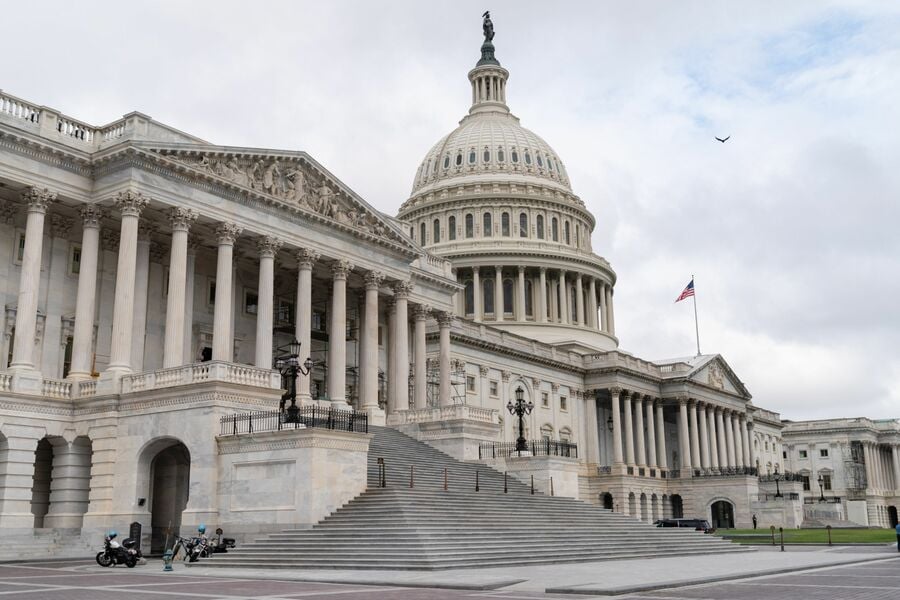

A bill that would set a deadline for charitable funds to be spent from an account where they can accumulate has stalled on Capitol Hill.
Last year, Sens. Charles Grassley, R-Iowa, and Angus King, I-Maine, introduced the Accelerating Charitable Efforts Act. The measure would set a 15-year deadline for money in a donor-advised fund to be allocated to charities.
The vehicles, known as DAFs, are popular because investors get an upfront tax break when they put money or other assets into a DAF. Under current rules, the money can stay in the fund indefinitely.
Proponents say the arrangement allows investors to bundle charitable donations to qualify for the tax benefit while giving them flexibility to dole them out over a number of years. Critics say money can get stuck in DAFs after the tax benefit has been paid.
Lawmakers want to speed up the giving process. The Senate legislation and a House companion would impose a 50% penalty on DAF donations that are not distributed by the deadline and implement other reforms. Neither bill has been acted on by the committees of jurisdiction.
“It doesn’t feel like it’s gotten a lot of attention since it first came out,” said Tim Steffen, director of tax planning at Robert W. Baird & Co. “It’s very quiet on that topic right now.”
The legislation has met resistance from charitable organizations.
“I’m worried about the unintended consequences,” said Rebecca Moffett, president of Vanguard Charitable. “You’re taking a tool that is so easy to use and putting complexities around it. We’re in an unprecedented time of need and we can’t inhibit generous charitable giving.”
The legislation doesn’t recognize the various ways DAFs can be utilized, said Una Osili, associate dean of the Lilly Family School of Philanthropy at Indiana University.
“Some of the provisions of the bill have a one-size-fits-all approach toward donor-advised funds,” Osili said. “In reality, [DAFs] can be quite wide-ranging. The challenge is developing legislation that can reflect that reality and avoid the unanticipated policy consequences.”
The compliance obligation that would go with tracking the DAF spending is creating resistance among DAF recipients.
“The concern is that this is going to be a regulatory burden on community foundations,” said David Bennett, interim president of the Foellinger Foundation and former executive director of the Community Foundation of Greater Fort Wayne in Indiana.
The Senate and House DAF bills will both die at the end of the year if they’re not approved by Congress. It’s not clear whether Grassley and the other sponsors will reintroduce them in the new Congress that begins in January. A Grassley spokesperson did not respond to a request for comment.
As legislation stalls, regulators may pick up the thread on DAF reform. The Treasury Department’s priority guidance plan for the current fiscal year, which was released in November, includes four DAF items that address excise taxes, distribution and other policies.
“In the best of all worlds, Congress is the appropriate body to discuss, debate and say whether this is good policy rather than accomplishing it through the regulatory system,” Bennett said.
States could take the lead on DAF reform. A bill in the California legislature would address DAF payouts and transparency.
“California gives us a chance to look at the data on some of these questions before there’s action at the federal level,” Osili said.
Charitable giving advocates also are pushing Congress to renew the $300 above-the-line tax deduction for donations that was approved in Covid legislation but expired at the end of 2021.
“Vanguard Charitable supports this provision and similar legislation that incentivizes all forms of charitable giving,” Moffett said.
Osili said the above-the-line deduction has proven effective at catalyzing philanthropy across income levels.
“The data does show that [it] has the effect of increasing the number of Americans who participate,” she said.

New chief executive Rich Steinmeier replaced Dan Arnold on October 1.

The global firm is navigating a crisis of confidence as an SEC and DOJ probe into its Western Asset Management business sparked a historic $37B exodus.

Beyond returns, asset managers have to elevate their relationship with digital applications and a multichannel strategy, says JD Power.

New survey finds varied levels of loyalty to advisors by generation.

Busy day for results, key data give markets concerns.
A great man died recently, but this did not make headlines. In fact, it barely even made the news. Maybe it’s because many have already mourned the departure of his greatest legacy: the 60/40 portfolio.
Discover the award-winning strategies behind Destiny Wealth Partners' client-centric approach.
